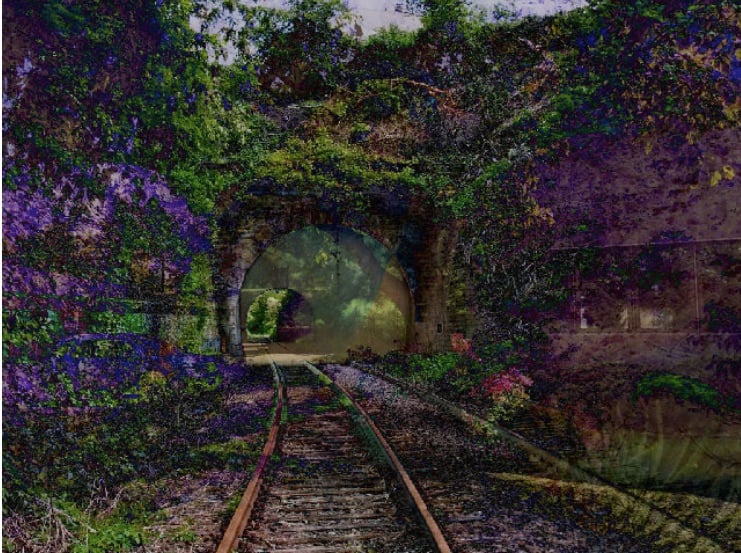
Image via U.S. Copyright Office.
The U.S. Copyright Office has once again rejected a request for copyright protection on a work created by artificial intelligence, affirming an earlier decision that found the work “lacks the human authorship necessary to support a copyright claim.”
The work in question, A Recent Entrance to Paradise, was put forth twice by Stephen Thaler on behalf of the “Creativity Machine,” the stated “author” of the work.
In his first application, made in November 2018, Thaler attached a note for the copyright office stating that the work “was autonomously created by a computer algorithm running on a machine” and said he was “seeking to register this computer-generated work as a work-for-hire to the owner of the Creativity Machine.”
After it was rejected, Thaler subsequently requested that the office reconsider its decision by arguing that “the human authorship requirement is unconstitutional and unsupported by either statute or case law.”
But the office re-evaluated the claims and again concluded, in a decision dated February 14, that the work “lacked the required human authorship” and that Thaler had “provided no evidence on sufficient creative input or intervention by a human author in the work.”
“We disagree with the Copyright Office’s decision and plan to appeal,” Thaler’s Los Angeles-based attorney Ryan Abbott told Artnet News. “AI is able to make functionally creative output in the absence of a traditional human author and protecting AI-generated works with copyright is vital to promoting the production of socially valuable content. Providing this protection is required under current legal frameworks.”
Thaler’s effort is “an academic project” seeking to test copyright standards, Abbott said. Thaler is currently making similar efforts with patents, which have been granted to A.I.-generated projects in some countries (Australia and South Africa), but not in others (the U.S. and U.K.)
A Recent Entrance to Paradise is part of a series Thaler has described as a “simulated near-death experience,” in which an algorithm uses pictures to create trippy images and an invented narrative about the afterlife, according to The Verge, which first reported the copyright office’s recent decision.
Abbott expects this to become an even more important issue in coming years as AI continues to improve in generating human-competitive output.